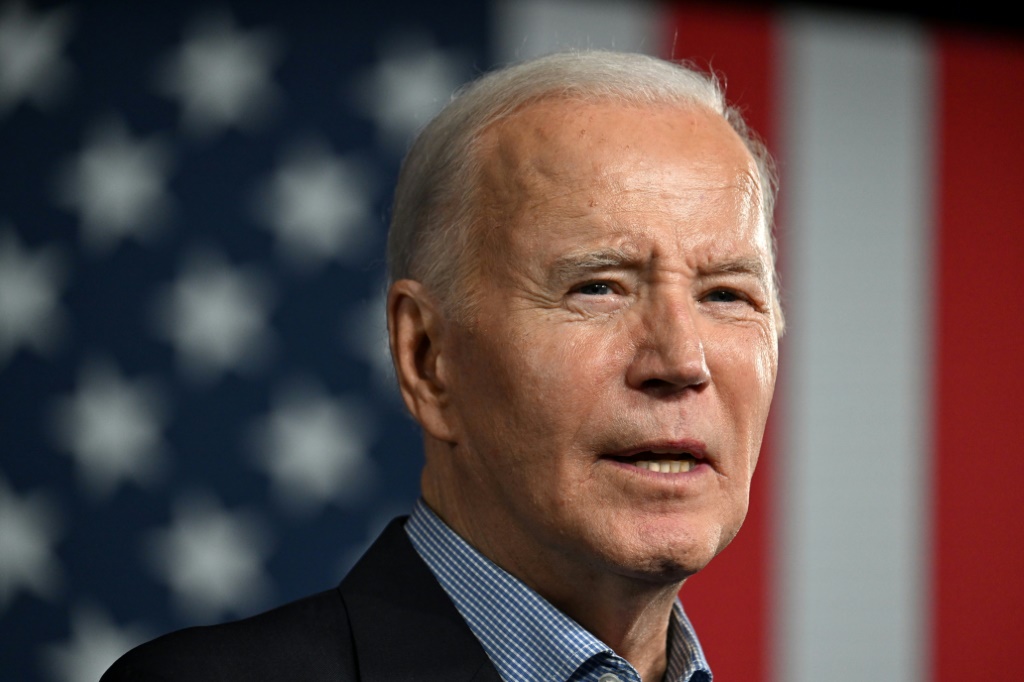Biden's 2025 budget plan highlights policy differences ahead of elections

Source: AFP
President Joe Biden's ambitious 2025 budget proposal, published Monday, is almost certain to be dead on arrival in the sharply divided US Congress ahead of presidential elections later this year.
Instead, the 2025 budget serves as a blueprint of the administration's economic policy priorities, and highlights the sharp divisions between Democrats and Republicans ahead of Biden's likely rematch with former president Donald Trump in November.
"We're seeing a great comeback story," Biden said during a speech in Washington before the proposals were published on Monday, highlighting his administration's recent economic record.
"Nearly 15 million new jobs created so far, that's a record. Growth is strong. Wages are rising. Inflation is down," he said.
Here's what's in the budget proposal, why it's unlikely to pass in Congress, and what it means for the upcoming elections:
What's in the budget?
The White House budget plans contain a number of populist measures proposed previously -- without success -- including a 25 percent minimum tax rate for the wealthiest Americans, and a hike in the corporate tax rate from 21 percent to 28 percent.
PAY ATTENTION: All celebrity news in one place! Follow YEN's Facebook Broadcast channel and read on the go.
It includes plans to strengthen social spending programs, such as restoring a popular child tax credit and allocates almost $260 billion to "build or preserve" two million housing units, according to a statement from the White House.
In a nod to environmental concerns, Biden's budget would also set aside $23 billion to spend on "climate adaptation and resilience" to address "the increasing severity of flood, wildfire, drought, and other extreme weather events fueled by climate change."
"The president's vision of progress, opportunities and fairness is in stark contrast to Congressional Republicans, who have repeatedly fought to slash critical programs the American people count on and increase the deficit by trillions of dollars," Biden's budget director, Shalanda Young, told reporters Monday.
"This year's budget comes at a time when it's clear that the president's economic strategy of building the economy from the middle out and bottom up is working," she added, repeating a phrase that Biden has used regularly on the campaign trail.
In line with Biden's previous proposals, the 2025 budget would ensure that "people making under $400,000 will not pay a single penny more in taxes," Young told reporters.
Question over deficit?
Under the plans laid out Monday, the new budget would cut the deficit by a total of $3 trillion over the next decade, according to the White House.
These cuts would be paid for through increased taxes for the wealthy and corporations, and by "closing tax loopholes and cutting wasteful spending on Big Pharma, Big Oil, corporate jets and other special interests, and cracking down on wealthy tax cheats," according to the White House statement.
While such proposals are popular with the party's base, they are unlikely to be well-received by Republicans, and some more moderate Democrats and independents in Congress, underscoring the challenge the administration now faces.
Could it pass?
The US Congress is highly unlikely to pass anything resembling this new budget by the end of the current fiscal year on September 30 given the stalemate between Republicans and Democrats over the current budget -- which has yet to be fully adopted.
Congressional inaction has led to a series of cliff-edge moments in recent months, with lawmakers often left scrambling to a government shutdown with just hours to spare.
Given the looming elections, in which the House and one third of the Senate are up for grabs, along with the presidency, the divisions between the two parties are only likely to grow in the coming months.
As a consequence, today's budget proposal reads as more of a wish list of progressive policy proposals for the campaign trail than a serious plan for funding the US government.
PAY ATTENTION: Stay informed and follow us on Google News!
Source: AFP



